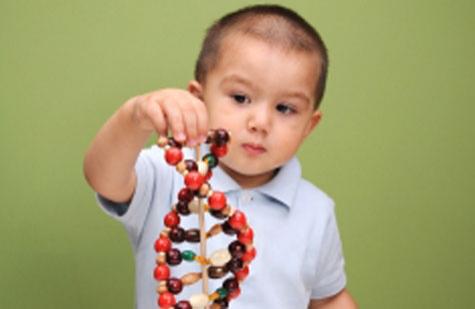Further studies are needed before the blood test becomes available, which could take another five years, but researchers say early results indicate the test can predict the likelihood of developing an ASD with a 72 per cent success rate.
The team of researchers led by the University of Melbourne made another significant finding, published in the journal Molecular Psychiatry this week, that could potentially lead to drug treatments for ASD.
The scientists identified genes that protect against ASD, in addition to genes linked to an increased risk of the disorders.
Both would be used in the genetic test to produce a higher or lower risk of developing autism, a condition characterised by abnormal social interaction, impaired communication and repetitive behaviours.
Lead researcher Professor Stan Skafidas from the University of Melbourne said it may be possible in future to harness those protective genes to develop new pharmacological treatments.
The genetic test could help clinicians provide treatment earlier to children and reduce the lengthy time it currently takes to diagnose the disorders.
However, Prof Skafidas conceded that the 72 per cent accuracy of the test meant a third of children tested could be misdiagnosed and either not go on to develop an ASD or develop a disorder the test had failed to predict.
He said the study had also shown that genetics played a significant part in autism, although other factors could also be involved.
Western Health neuropsychologist Dr Renee Testa said diagnosing ASD was a lengthy and costly process that put significant pressure on both parents and children, which a genetic test could potentially alleviate.
"If there is a possibility of having an early marker that can help us monitor these children for any significant signs of ASD then I think that would be a significant help," she said.
Stephanie Baker, 33, said having a genetic test could have helped diagnose her two young boys earlier with an autism spectrum disorder.
Three-year-old Hamish was diagnosed with autism when he was two, while Robert, 5, was only diagnosed with Asperger's Syndrome three months after turning five.
"The earlier you can diagnose, the better," she told AAP.
"I probably would have got somewhere with him (Robert) a couple of years sooner if there was something like this."
The study used data from about 7,000 people with autism and identified 237 genetic markers in 146 genes.
About one in 150 children have an ASD, affecting about 120,000 Australians.
Researchers from Monash University, Melbourne Health and Austin Health were also involved in the study.



















__small.png)










